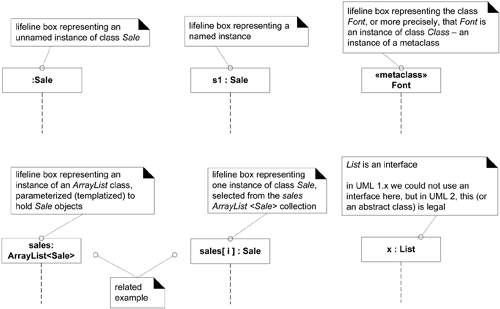Applying UML and Patterns - Part 3 - Elaboration Iteration 1 - Basics
Chapter 8
Chapter 13 Logical Architecture and UML Package Diagrams
Layer design
- UI layer
- application logic(domain) layer
What is the Logical Architecture? And Layers?
The logical architecture is the large-scale organization of the software classes into packages (or namespaces), subsystems, and layers.
Chapter 15 UML Interaction Diagrams
What's the purpose?
Illustrate how objects interact via messages, used for dynamic object modeling.
Sequence and Communication Diagrams
Sequence diagrams illustrate interactions in a kind of fence format.
- It's closer to UML specification
- Mapping to call-flow sequence from reading top to bottom
- reverse-engineered call-flow sequence from source code.
Communication diagrams illustrate object interactions in a graph or network format, in which objects can be placed anywhere on the diagram.
- "UML as sketch" for agile modeling.
- Simpler
- Easier to add new objects.
| Type | Strengths | Weaknesses |
|---|---|---|
| sequence | clearly shows sequence or time ordering of messageslarge set of detailed notation options | forced to extend to the right when adding new objects; consumes horizontal space |
| communication | space economical—flexibility to add new objects in two dimensions | more difficult to see sequence of messagesfewer notation options |

Chapter 17 GRASP: Design objects with responsibilities
GRASP: General Responsibility Assignment Software Patterns
Nine GRASP Patterns:
-
Creator(Factory)
-
Information Expert(Information hiding)
-
Controller(Command, Facade, Layers)
-
High Cohesion
- Cohesion (or more specifically, functional cohesion) is a measure of how strongly related and focused the responsibilities of an element are.
-
Low coupling
- Coupling is a measure of how strongly one element is connected to, has knowledge of, or relies on other elements.
-
Indirection
-
Polymorphism
-
Protected variations
-
Pure fabrication